Monique van Genderen "After Images"
23 Apr - 31 Jul 2022
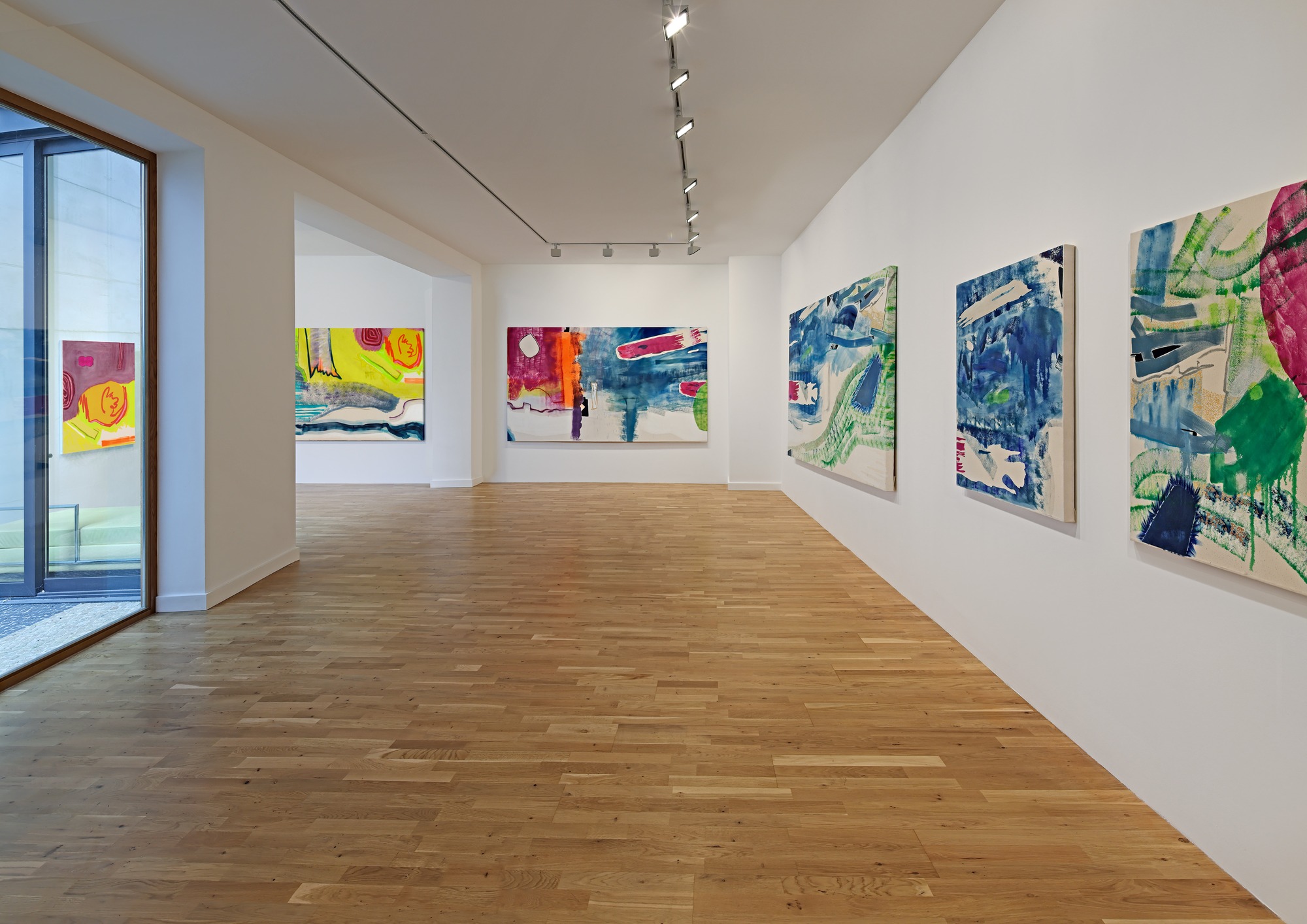
Monique Van Genderen, After Images, Installation views, 2022, Galerie Michael Janssen, Berlin Photo:Studio Lepkowski
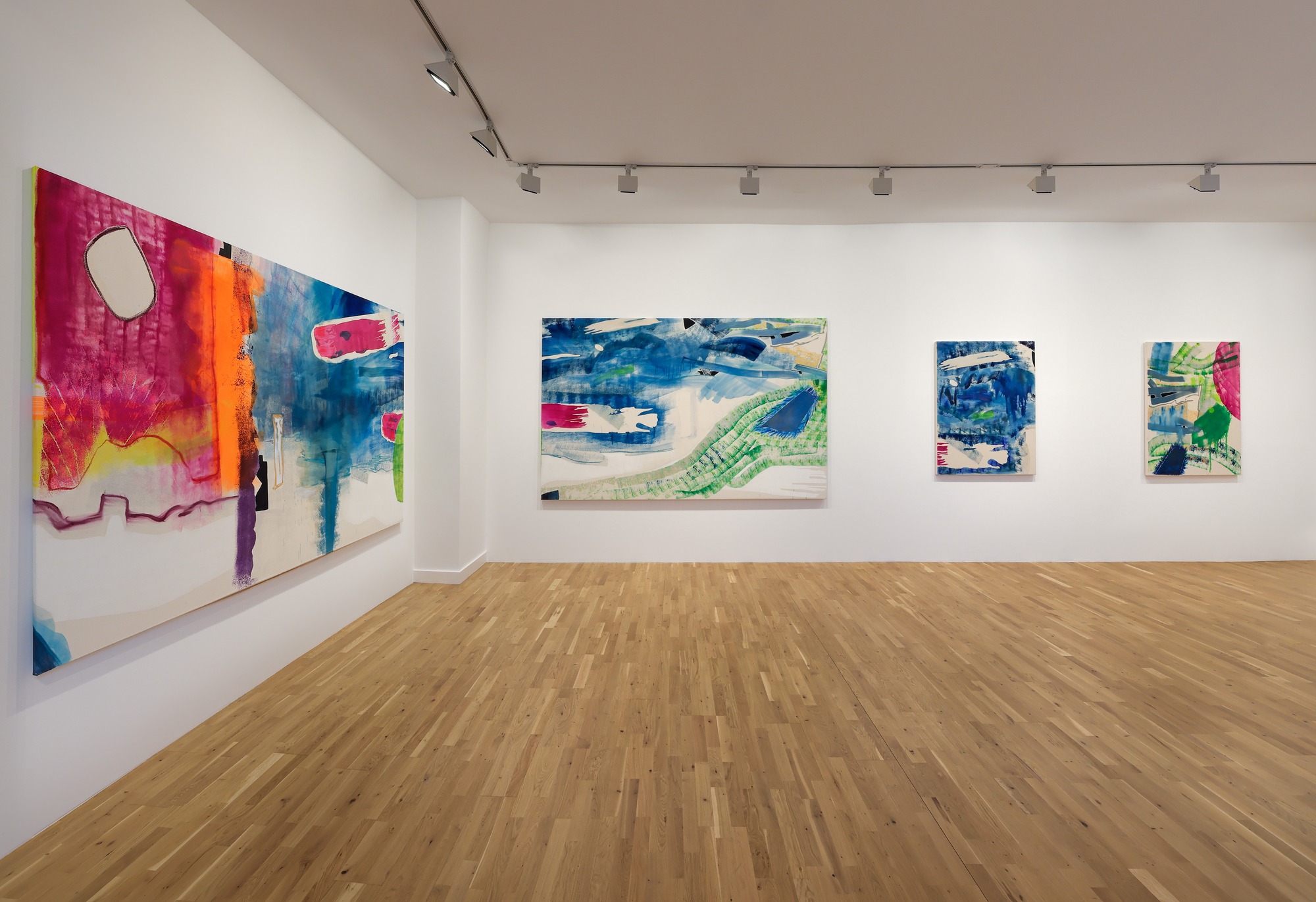
Monique Van Genderen, After Images, Installation views, 2022, Galerie Michael Janssen, Berlin Photo:Studio Lepkowski
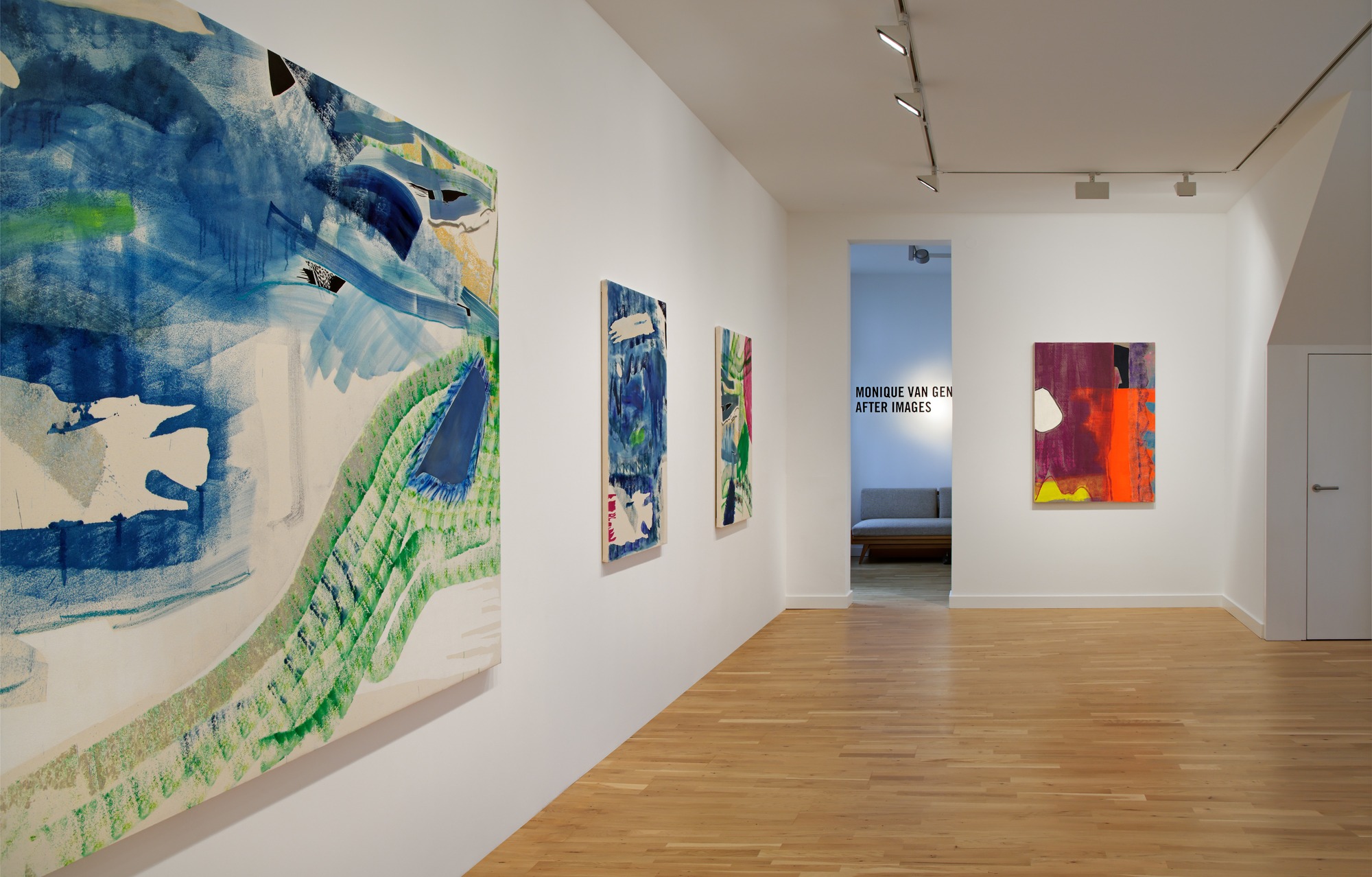
Monique Van Genderen, After Images, Installation views, 2022, Galerie Michael Janssen, Berlin Photo:Studio Lepkowski
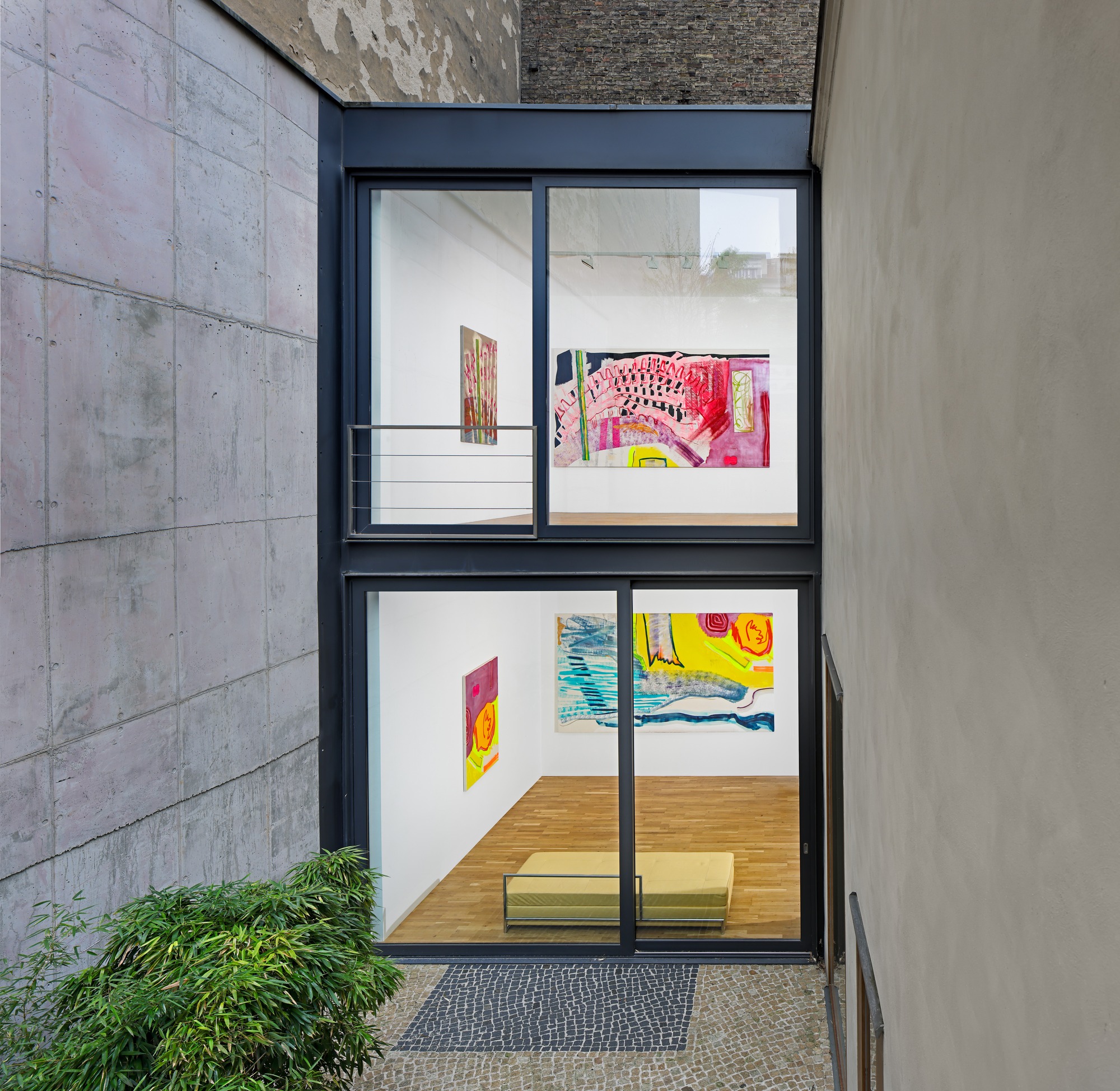
Monique Van Genderen, After Images, Installation views, 2022, Galerie Michael Janssen, Berlin Photo:Studio Lepkowski
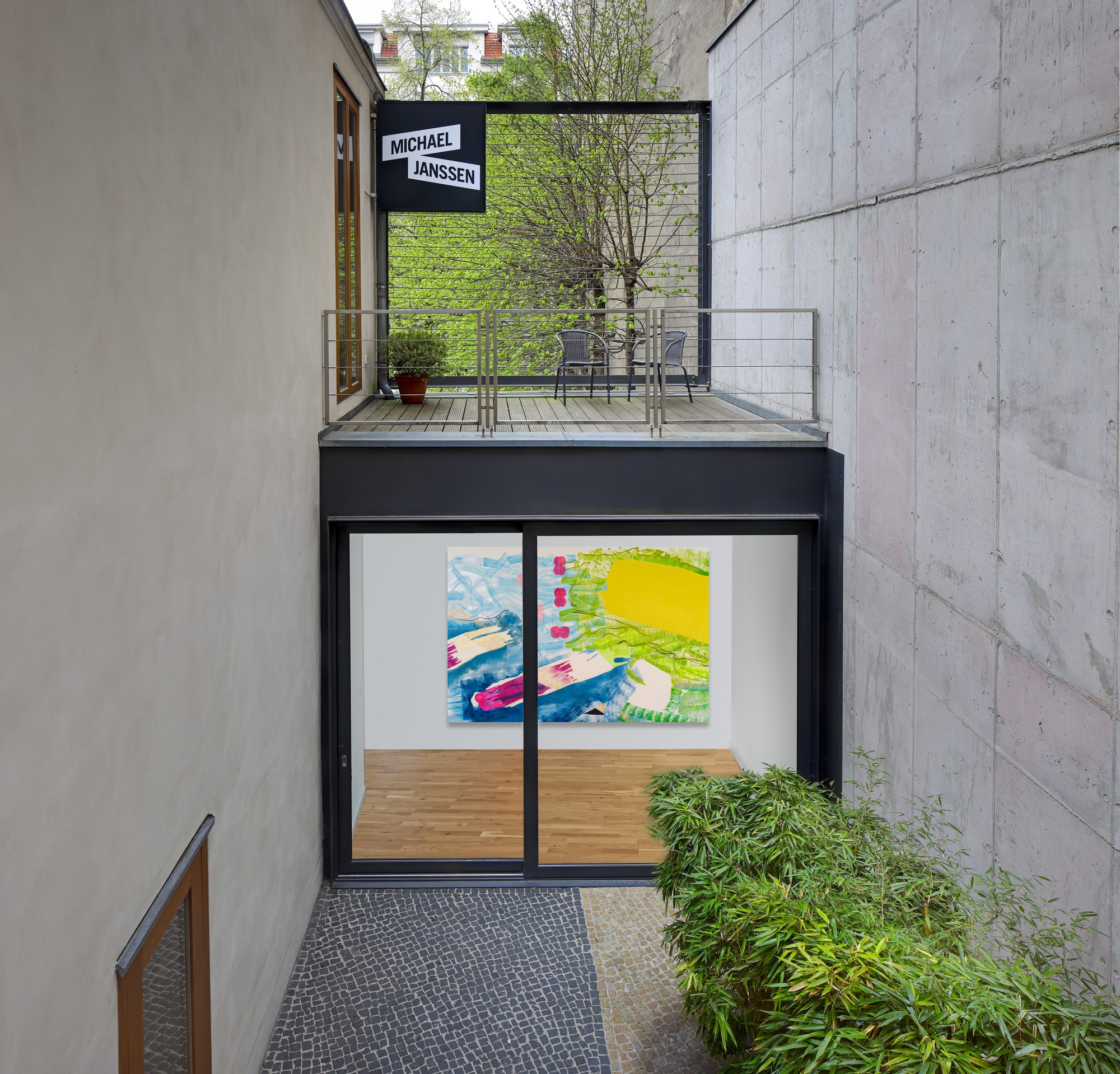
Monique Van Genderen, After Images, Installation views, 2022, Galerie Michael Janssen, Berlin Photo:Studio Lepkowski
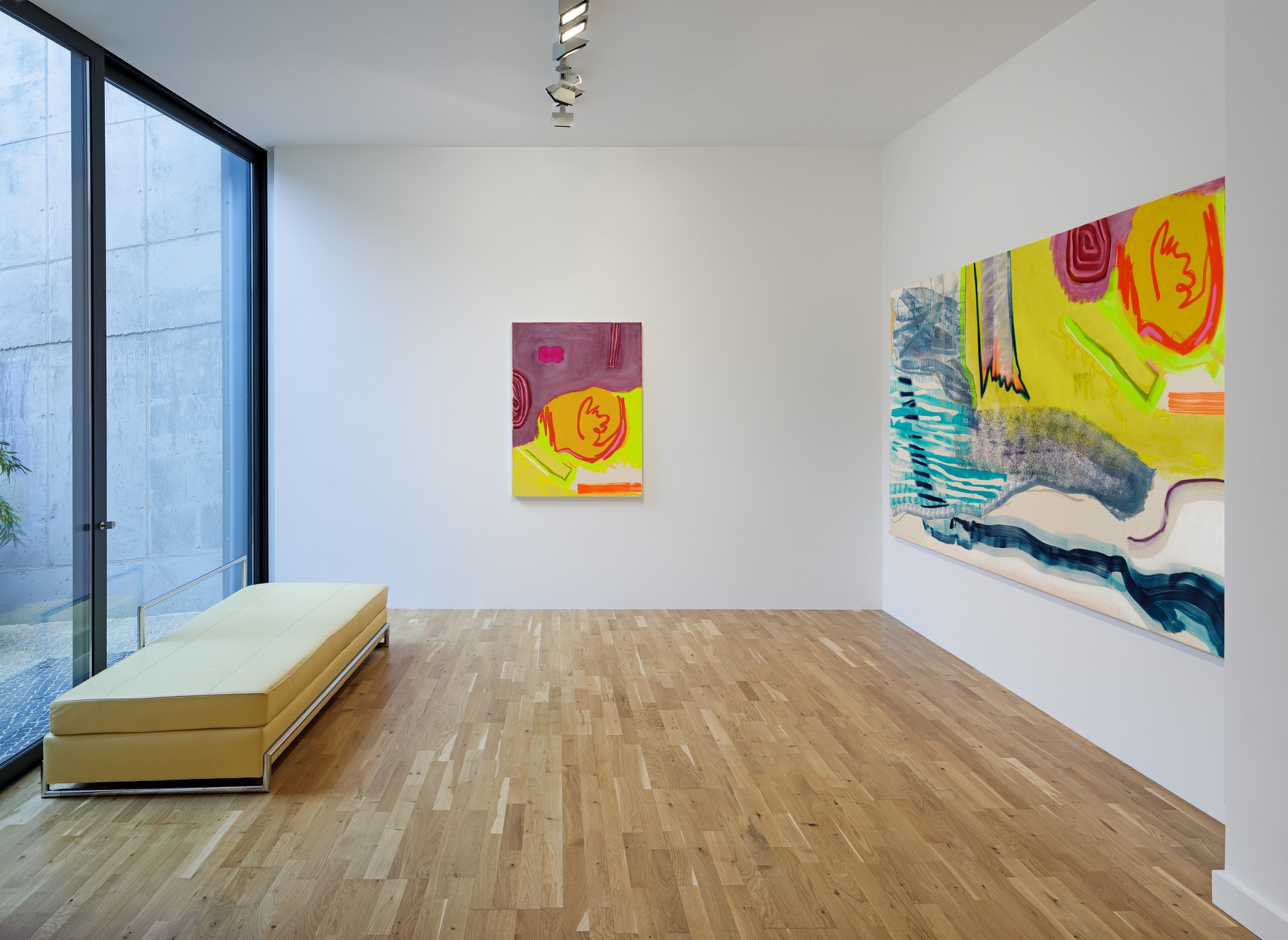
Monique Van Genderen, After Images, Installation views, 2022, Galerie Michael Janssen, Berlin Photo:Studio Lepkowski
Michael Janssen Berlin is pleased to announce the opening of After Images, the exhibition of California-based artist Monique van Genderen. In her third solo show at the gallery, the artist continues exploring the spectacle, the cinematic, and the humanistic in their relationship to abstract art by shifting formats and scales. This time she utilizes the specificity of the architecture to develop her theories through installation painting.
The title alludes to the artist's exhibition Afterimages shown in 2021 at Susanne Vielmetter Gallery. Her afterimages are produced through the repetition of artistic references: by copying representational elements from her previous paintings, van Genderen challenges the stability of identity with her recent works. Replicated images remain in the viewer’s periphery, becoming memory shapes.
In After Images van Genderen reevaluates the disciplinary concept of panopticism, employing the spatial significance of the architecture. A symbolic adjustment in the exhibition title —from Afterimages to After Images — indicates a compositional change. Retrofitting the painting to the new space of the Michael Janssen Gallery, the artist cut her large scale painting A Side, folding the ideas of panopticism and the afterimage into a singular experience. The perspective of the top and bottom floor, observed simultaneously, produces the sensation of a panopticon, where the viewer is in control of their vision, adding the pieces together in their mind’s eye. In this manner, the oppressive structure introduced by English philosopher Jeremy Bentham —a central observation tower placed within a circle of prison cells —is transformed into a space of self-reflection. Without a controlling master, the viewer disengages from dictatorial discipline techniques and gets an opportunity to establish a fluid dialogue with the work. By putting the observer in this malleable position, the architecture turns the painting into a subject, humanizing it.
A search for the human in abstraction is one of the crucial lines in the artistic exploration of Monique van Genderen. She experiments with the potential and limits of her art through scale, format and materials. The interplay of biomorphic forms, luminous colors and quirky geometry of whimsical shapes creates a vibrant landscape, which combines the spontaneity of abstract expressionism with modern painting sensibilities. The access to details helps to establish an intimate connection between a work and an observer, redefining the notion of the spectacle and reaffirming the objecthood of painting. The historical references in her large scale piece: such as the pink and red vertical element allude to the large strips of bacon depicted in Rosenquist’s painting “Star Thief”. This abstract play between bacon the food and Bacon the painter establishes this humanistic approach and process in her visual language.
Experimenting with the potential of painting’s relation to spatial contexts, Monique van Genderen creates physical experiences in dimensionality and illusion. Her “inverted” panopticon empowers both the viewer and the work, turning the oppressive construction described by Michel Foucault as “a state of conscious and permanent visibility that assures the automatic functioning of power” into a space for contemplation and self reflexivity.
Text: Karina Abdusalamova
The title alludes to the artist's exhibition Afterimages shown in 2021 at Susanne Vielmetter Gallery. Her afterimages are produced through the repetition of artistic references: by copying representational elements from her previous paintings, van Genderen challenges the stability of identity with her recent works. Replicated images remain in the viewer’s periphery, becoming memory shapes.
In After Images van Genderen reevaluates the disciplinary concept of panopticism, employing the spatial significance of the architecture. A symbolic adjustment in the exhibition title —from Afterimages to After Images — indicates a compositional change. Retrofitting the painting to the new space of the Michael Janssen Gallery, the artist cut her large scale painting A Side, folding the ideas of panopticism and the afterimage into a singular experience. The perspective of the top and bottom floor, observed simultaneously, produces the sensation of a panopticon, where the viewer is in control of their vision, adding the pieces together in their mind’s eye. In this manner, the oppressive structure introduced by English philosopher Jeremy Bentham —a central observation tower placed within a circle of prison cells —is transformed into a space of self-reflection. Without a controlling master, the viewer disengages from dictatorial discipline techniques and gets an opportunity to establish a fluid dialogue with the work. By putting the observer in this malleable position, the architecture turns the painting into a subject, humanizing it.
A search for the human in abstraction is one of the crucial lines in the artistic exploration of Monique van Genderen. She experiments with the potential and limits of her art through scale, format and materials. The interplay of biomorphic forms, luminous colors and quirky geometry of whimsical shapes creates a vibrant landscape, which combines the spontaneity of abstract expressionism with modern painting sensibilities. The access to details helps to establish an intimate connection between a work and an observer, redefining the notion of the spectacle and reaffirming the objecthood of painting. The historical references in her large scale piece: such as the pink and red vertical element allude to the large strips of bacon depicted in Rosenquist’s painting “Star Thief”. This abstract play between bacon the food and Bacon the painter establishes this humanistic approach and process in her visual language.
Experimenting with the potential of painting’s relation to spatial contexts, Monique van Genderen creates physical experiences in dimensionality and illusion. Her “inverted” panopticon empowers both the viewer and the work, turning the oppressive construction described by Michel Foucault as “a state of conscious and permanent visibility that assures the automatic functioning of power” into a space for contemplation and self reflexivity.
Text: Karina Abdusalamova
